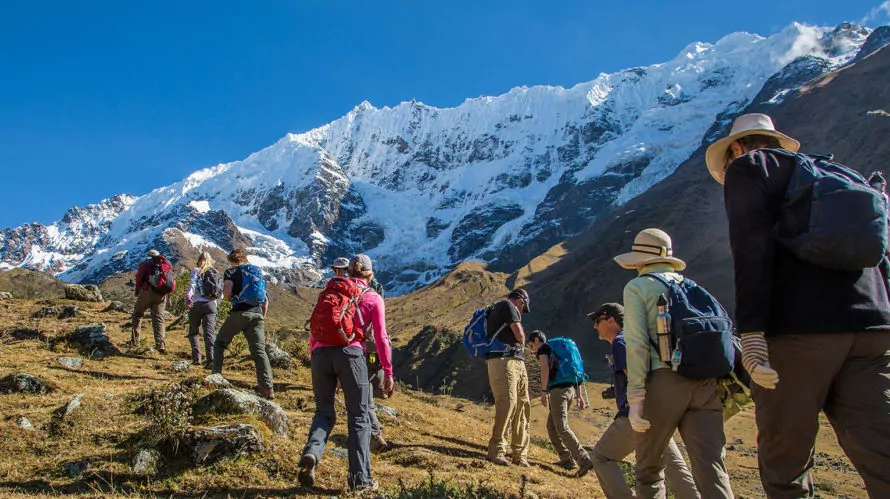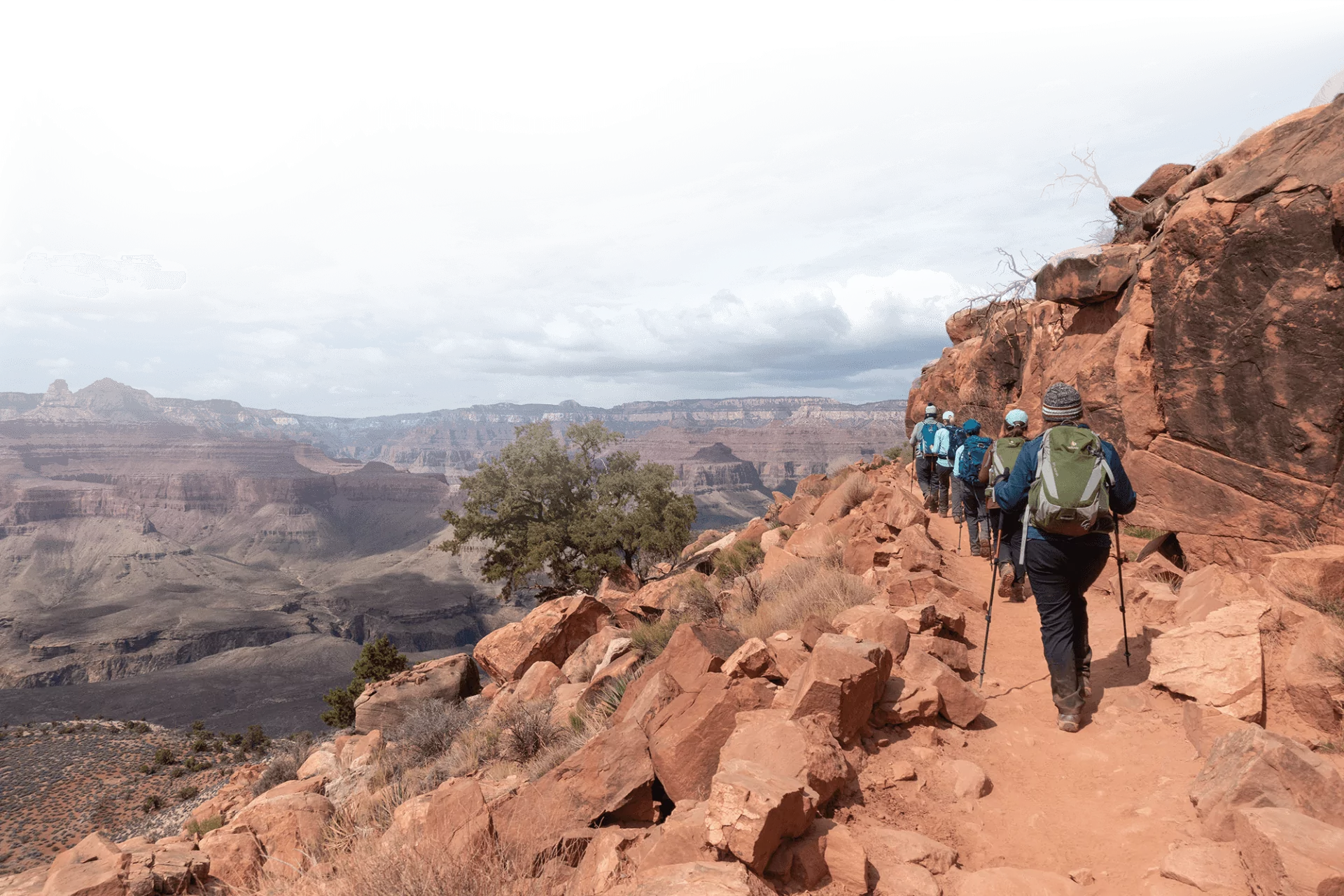10 Skills for Outdoor Leaders

At Wildland International (the subsidiary of Wildland Trekking that operates our Global Adventures Trips), we are passionate about the exploration of the wild, natural, and culturally rich places our planet offers. In order to effectively lead our guests to some of these grandest places, our guides need to be well-versed in leadership theory and practical application. Many of the skills developed and applied in the outdoors can be transferred to life at home or in the workplace. Below are 10 skills that may aide a person in developing their leadership capabilities in the backcountry and the front-country.
Hiking and Backpacking Guide Jobs
1. Influence
Leadership is all about gaining the ability to influence others. The greatest leaders in the history of the world have had one thing in common: the ability to influence. How does one influence a person or group? Building rapport and getting to know the individuals is a good start. Words spread fast, and energy is contagious. Additionally, whoever you are leading in the outdoors needs to trust you and have confidence in your abilities.
2. Awareness
Overarching awareness is key when considering how one leads in the outdoors. Guides need to remain aware of a friend’s skill level, a client’s apprehensions, and most importantly, themselves. What are your strengths as a leader? What can you do differently to improve? How do you come across to other people?
3. Communication
Verbal communication and non-verbal communication, such as body language and hand gestures, are a few ways that humans communicate. In the outdoors and on backpacking adventures, communication needs to be clear to ensure that all members of the trip are on the same page. How do we get on the same page? Experienced outdoors-people will usually have formal or informal briefings and debriefings. These meetings provide the opportunity to discuss any personal or group goals. They also help with excitement or apprehension about the anticipated activity. The focus needs to be on the intention of the guide in correlation with the impact it has on the guest. This is best demonstrated by saying what you mean, and meaning what you say.
4. Critical Thought
Why do we do things the way we do them? The ability to analyze our cognitive process is a skill valued in leadership, especially when making important decisions. Risk management is essential for outdoor leaders to understand, and you can’t assess risk and make decisions without critical thinking skills.
5. Behavior
The majority of high-altitude mountain expeditions do not reach the summit, not because of incompetency, but rather, because of poor expedition behavior. Always pull your weight, help with camp chores when they need to be done, work efficiently, and always put the group before yourself (with some exceptions.) Treat your partners with compassion, and have respect for the people who live where you are recreating.
6. Goals
Only 5% of people in the United States write down their goals. Of that 5%, 95% of them accomplish their goals. Be specific with your personal aspirations, and come up with group goals that are both realistic and measurable. Creating a Venn diagram is a good way to focus on the steps you need to take to accomplish your goals. Write the goal in the middle and work your way out: it’s all about planned execution.
7. Tolerance
Understanding one’s personal tolerance level can be beneficial when faced with adversity in the outdoors. The natural world can be a challenging place, and the people you may encounter may also pose challenges. When it dumps three feet of snow in mid-summer and you’re in the mountains for another 10 days, are you going to complain? Be present and cognizant of your presence in adverse conditions; you’ll build tolerance for adverse situations. Additionally, learn to work with a variety of people and communicate openly. These skills will help you when you deal with challenging situations in the future.
8. Self-Care
In order to manage others in adverse conditions, you need to manage yourself efficiently and effectively. Pack light, but do not compromise your health. Plan accordingly and constantly reassess. Think “what if?” If you are guiding, bring extra gear for your clients. If you are instructing, it may be advantageous to role model for your students. Drink copious amounts of water and eat gracious amounts of food. Put on layers when you’re cold and take off layers when you’re hot. Get to know what your body feels like when it is pushed, and treat yourself well.
9. Organization
As an outdoor leader, you need to know where all of your gear is located all of the time. It takes time to create systems and dial those systems in your mind. Know (and remember) where you need to keep accessible items, such as your rain gear, water, food, and headlamp. Make sure your pack is balanced and compressed. Waterproof your items, but try not to let anything get wet. Keep everything on the inside of your pack.
10. Competence
Whatever skillset you choose, try your hardest, and do the best you can. All great leaders prove competent in their medium. How do you do this? Find a mentor, read a book about your desired skills, practice with friends, or take a class. If you’re competent in a skill, the people you’re adventuring with or leading in the backcountry will feel more confident. Additionally, have a strong understanding of risk management and hazard evaluation: it will strengthen your leadership skills and help you to reduce injury and illness on your trips.
Why is leadership important in the outdoors?
One of the main goals for any outdoor enthusiast is to return home healthy from their activity or expedition. In order to accomplish this, risk management and good decision-making need to be at the forefront of one’s mind. In order to become a great leader and decision-maker, you need to gain experience through determination and practice. All of the skills above can be transferred into your life at work and at home. If you implement these skills into your daily life, they can help you accomplish your dreams.





